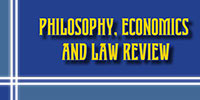Halyna HREBENIUK
Ph.D. (Economics) (Ukrainian State University of Science and Technology), Ukraine
ORCID iD: orcid.org/0000-0002-2807-0268,
galinadiit@ukr.net
UDC 332
DOI 10.31733/2786-491X-2022-1-88-95
Keywords: personnel evaluation, weighted evaluation, competencies, Google forms, online surveys, customer orientation, loyalty.
Abstract. In the context of globalization of the tourism industry, the organization of personnel management and the efficiency of its use require more and more attention, as personnel is the main resource of tourism business enterprises. The competitiveness and performance of tourism enterprises directly depend on the effectiveness of personnel management, namely on its objective assessment and proper distribution of competencies, which reflect not only the professional level but also the business and personal qualities of tourism employees. Personnel evaluation is considered as an element of management and certification of personnel used in the tourism industry, as a necessary tool for studying the quality of staff, its strengths, and weaknesses. Any assessment is the result of a comparison of a facility with certain standards, regulatory requirements, well-known parameters, and staff assessment is no exception. In the proposed approach, personnel evaluation involves comparing certain competencies of employees with the relevant reference requirements of the position held or claimed by an object of evaluation. The essence of the evaluation proposed in the article is that for each position in the tourism industry it is possible to develop a reference version of competencies, through which, after the evaluation, management makes an informed management decision, namely to train, develop, motivate or release the object of evaluation. Training is appropriate if there is a lack of knowledge, skills, and abilities; it is necessary to develop when there are basic skills and it is necessary to reveal potential; motivate, if the necessary set of knowledge and skills is available, but not used to the full extent; and an employee is fired in the event that education and training are impractical. The article proposes an approach to solving the problem of objective evaluation of tourism industry personnel. The above approach is aimed at obtaining detailed information about how a certain employee shows his professional and personal qualities and how they correspond to the position. The proposed approach is based on the theoretical and methodological instruments of the method of alternative characteristics and scoring system.
References
Biba, V., Tenitskaya, N., & Bilyzna, A. (2018). Estimation of competitive advantages of business development in the field of tourism on the basis of SWOT-analysis. Economy and society. 19, pp. 287-291, https://economyandsociety.in.ua/journals/19_ukr/43.pdf.
Buchynska, T. (2017). Assessment of personnel as an important element of effective management. Problems of system approach in economics, no. 1(57), pp. 59-64, http://psae-jrnl.nau.in.ua/journal/1_57_2017_ukr/10.pdf.
Huertas-Valdivia, I. (2021). Role play in the personnel process: Experimental training with undergraduate students in tourism. Journal of Hospitality, Leisure, Sports and Tourism Education, 29, https://www.sciencedirect.com/science/article/abs/pii/S1473837621000356#!
Kichko, I., & Gayova, D. (2021) Prospects for the use of personnel assessment of hotel business by criteria of competence and personality system. Effective Economy, 3, http://www.economy. nayka.com.ua/pdf/3_2021/9.pdf.
Klimova, A. (2020). Professional competence of staff as a component of success of the tourist enterprise. Agrosvit 11, pp. 115-121, http://www.agrosvit.info/pdf/11_2020/16.pdf.
Krikun, O., & Rybalka, A. (2020). Improving the system of personnel evaluation of the enterprise. Market infrastructure, 43, pp. 178-184, www.market-infr.od.ua/journals/2020/43_2020_ ukr/34.pdf.
Labanauskaite D., Fiore M., & Stashis R. (2020). The use of e-marketing tools as communication management in the tourism industry. Prospects for tourism management, 34, https://www.sciencedirect.com/science/article/abs/pii/S2211973620300192.
Maltyz, V. & Tarasenko, Y. (2018). Personnel evaluation: modern methods and tools for its implementation. Economy and society, 19, pp. 484-489, https://economyandsociety. in.ua/journals/19_ukr/73.pdf.
Martsenyuk, L, & Charkina, T. (2017). Tourism as a way to expand human living space. Anthropological dimensions of philosophical research 11, pp. 63-70, http://eadnurt.diit.edu.ua/jspui/bitstream/123456789/10697/1/ AMPR_11.pdf.
Romanyuk, I. (2020). Improving the quality and efficiency of the labor potential of enterprises in the tourism industry on the basis of motivation and incentives for employees. Economic Bulletin of the University, 44, pp. 120-124, https://economic-bulletin.com/index.php/ journal/article/download/634/651/.
Rovenskaya, V., & Shishkova, N. (2019). Features of personnel management in the tourism industry of Ukraine. Priazovsky Economic Bulletin, 3(14), pp. 222-229, http://pev.kpu.zp.ua/journals/2019/3_14_uk/39.pdf.
Tsymbalyuk, S., & Bilyk, O. (2021). Evaluation of personnel. Tutorial. Kyiv KNEU, 311 p. https://ir.kneu.edu.ua/bitstream/handle/2010/35638/Tsymbaliuk%20Bilyk.pdf?sequence=1&isAllowed=y.
